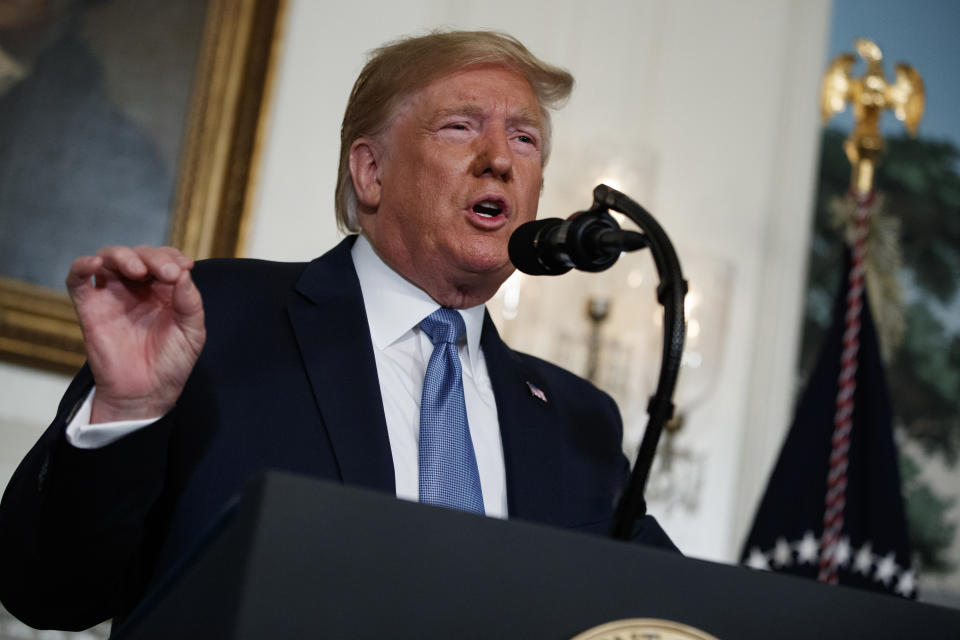Trump blames 'mental illness' for shootings, but rolled back Obama regulation on gun sales
In the wake of this weekend’s mass shootings in El Paso, Texas, and Dayton, Ohio, President Trump was quick to point to mental illness as a cause, echoing a Republican talking point that emerged in interviews and social media posts on Sunday.
“Mental illness and hatred pull the trigger, not the gun,” said Trump in a speech Monday morning from the White House. He said the country “must make sure that those judged to pose a grave risk to public safety do not have access to firearms, and that, if they do, those firearms can be taken through rapid due process.”
But in his first full month in office, Trump signed a bill rolling back an Obama-era regulation that would have made it more difficult for people with mental illnesses to purchase firearms. The rule would have used Social Security records to add about 75,000 names to the database used in background checks of gun buyers (from licensed firearms dealers). People receiving supplemental-income support for mental disability and those found unfit to handle their own financial affairs would have been precluded from purchasing firearms. While the rule went on the books just before Trump took office in January 2017, compliance was not mandatory until December 2017.
The resolution revoking the rule passed both houses of Congress in February 2017, almost entirely along party lines, with virtually all Republicans voting in favor of it. In a departure from his usual fanfare in signing legislation, Trump did not hold a photo op or press availability when he signed H.J. Res 40 on the final day of February.

The Obama regulation was opposed both by the National Rifle Association and the American Civil Liberties Union. Studies have found little to no correlation between mental health and gun violence.
“[S]urprisingly little population-level evidence supports the notion that individuals diagnosed with mental illness are more likely than anyone else to commit gun crimes,” read a 2015 study in the American Journal of Public Health, which noted that “less than 3% to 5% of U.S. crimes involve people with mental illness, and the percentages of crimes that involve guns are lower than the national average for persons not diagnosed with mental illness. Databases that track gun homicides, such as the National Center for Health Statistics, similarly show that fewer than 5% of the 120,000 gun-related killings in the United States between 2001 and 2010 were perpetrated by people diagnosed with mental illness.”
Acting White House chief of staff Mick Mulvaney referred to the gunmen in El Paso and Dayton as “crazy people” who “should not be able to get guns.”
“Sick people who are intent on doing things like this should not be able to buy guns legally,” he said Sunday on ABC’s “This Week.”
Mulvaney did not say how sellers could determine the mental health of customers or their intentions in buying a gun. Mental health advocacy groups have criticized the White House for trying to roll back protections for those seeking treatment.
_____
Download the Yahoo News app to customize your experience.
Read more from Yahoo News:
FBI document warns conspiracy theories are a new domestic terrorism threat
Marianne Williamson on reparations and her emails with Oprah
'It's blasted across America': How Fox and Sean Hannity amplified a Russia-fueled conspiracy
Democrats resume search for a 'smoking gun' to bring down Trump
PHOTOS: Ohio mass shooting leaves 10 dead including the gunman



